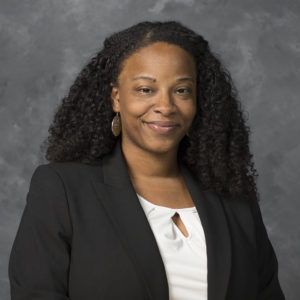
About 180 students, faculty, student affairs and academic affairs staff from the nation’s top universities are at Washington University in St. Louis this week for the fourth annual Residential College Symposium. Led by Jill Stratton, associate dean of undergraduate residential learning, and the symposium planning team, the event will close with the panel “How Residential College Communities Can Best Respond to Community Crises in Our Current Climate,” facilitated by Kawanna Leggett, executive director of residential life. Here, Leggett explains the different sort of crises that residential life professionals face and the importance of residential colleges.
What is the unique role of a residential college community during times of crisis, and what enables a residential college to best support students?
Since the beginning of the semester, we have experienced numerous types of disasters both nationally and globally, including bombings, earthquakes, wildfires, hurricanes and active shooters. In our region, we have also experienced challenging events. During these times, our residential advisors (RAs), faculty fellows and residential college directors play a key role in supporting students and connecting them with resources from our campus partners. Because they interact with students in the hallways, at campus events and, at times, in the classroom, they truly know students by name and story.
What do RAs need to support students during challenging times?
The Office of Residential life prides itself on hiring a diverse and dynamic team composed of student, graduate and professional staff. The RA creates opportunities for students to learn about themselves and others and facilitate the general well-being of the community. It is a challenging experience and demands training that is intensive and ongoing. We have weekly staff meetings and trainings in August and in the winter. Campus partners such as Student Health Services, the Washington University Police Department, Cornerstone, the Relationship and Sexual Violence Prevention Center, the Center for Diversity and Inclusion and many others play a big role in that training.
Is there a Residential Life academic program that really excites you?
There are many, but I am especially inspired by the active, critical dialogue that is taking place in “Identity Literacy,” a new one-credit course embedded in the first-year experience on the South 40. Jill Stratton and Odis Johnson (associate professor of sociology and of education in Arts & Sciences) lead the course design, which brings together students from the different floors to learn about race, gender, sexual orientation, socioeconomic status, ability, religion and national origin and other identities. That’s the beauty of residential colleges; they teach us how to learn from one another to live amongst difference.